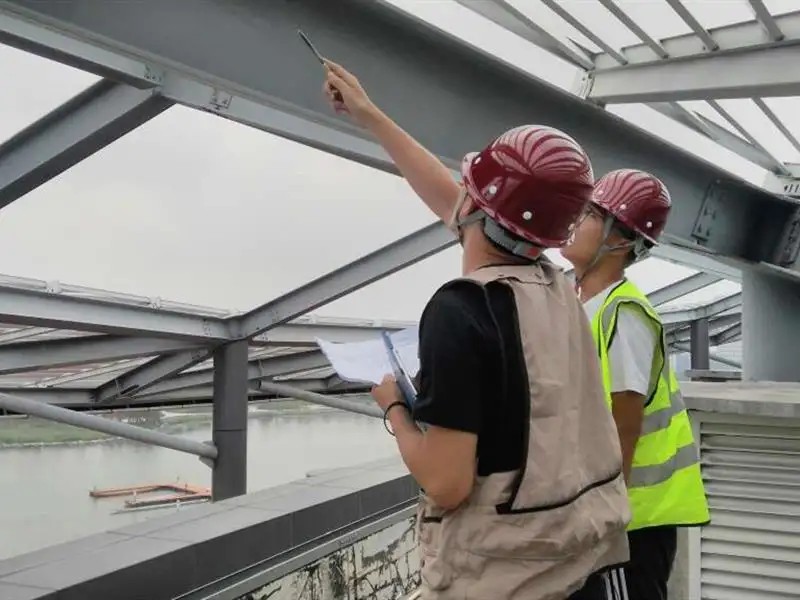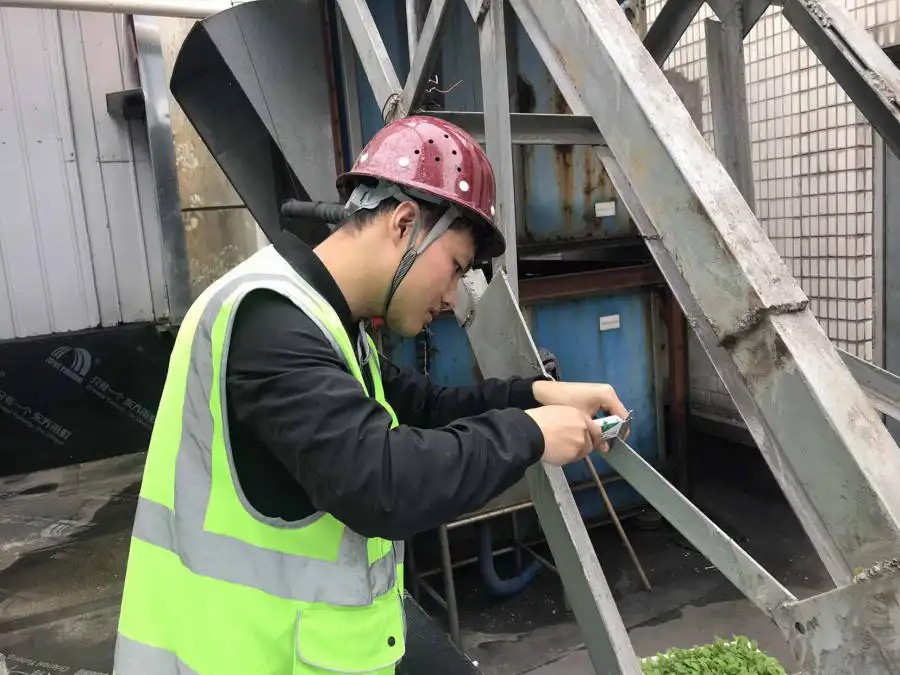In modern industrial development, plant as the core place of production and operation, its safety and compliance is the basis of enterprise development. In order to ensure that the construction and use of plant buildings comply with the requirements of relevant laws and regulations, plant certification testing has become particularly important. In this paper, we will discuss the necessity and content of plant license inspection, as well as its significance to enterprises and society.
The necessity of plant license inspection
Plant certification inspection refers to the process of confirming whether the plant meets the safety and compliance requirements by comprehensively inspecting the structure, equipment, safety measures and other aspects of the plant according to national standards and relevant regulations before the construction and commissioning of the plant. The necessity of this process is reflected in the following aspects:
First of all, factory building license inspection can ensure the safety of the factory building. By testing the structure, materials, fire fighting facilities, electrical equipment, etc., potential safety hazards can be detected and corresponding improvement measures can be proposed to ensure that no accidents will occur or safety accidents will be minimized during the use of the plant.

Secondly, plant license inspection helps maintain the sustainable development of the ecological environment. For example, for chemical plants, heavy industry and other environmentally sensitive enterprises, plant license inspection can ensure that their environmental protection in line with national and local standards, reduce the pollution of the surrounding environment and promote green development.
Finally, plant certification testing helps to regulate business behavior and maintain market order. By confirming the compliance of plant facilities through testing, it can prevent some unscrupulous enterprises from using low-quality and high-pollution equipment, thus improving the quality and safety level of the whole industrial chain and promoting the standardized development of the industry.
The content of the factory building license inspection
The content of the factory building license inspection mainly includes the following aspects:
The first is the structural safety inspection of the factory building. This part is mainly concerned with the stability and seismic capacity of the factory building structure, including the foundation bearing capacity, building frame structure, stairs, floor slabs and other aspects. The purpose is to ensure that the plant building can remain stable in natural disasters or other emergencies, so as to protect the lives of employees.
Next is the safety testing of equipment and electrical systems. This section focuses on the operational safety of the equipment, the compliance of the electrical wiring, and the effectiveness of explosion-proof, fire-proof, and corrosion-proof measures. The aim is to ensure that equipment operates properly and without accidents, and to reduce the risk of catastrophic events such as fires and explosions.
Once again, there is environmental protection and energy conservation testing. This section focuses on aspects such as plant emissions and wastewater treatment systems, noise control facilities and energy utilization to ensure that the enterprise can meet environmental protection requirements during the production process and promote energy conservation and emission reduction to promote sustainable development.
Lastly, it is the assessment of safety management systems and emergency response measures. This section focuses on whether the enterprise has established a sound safety management system and emergency response plan, including aspects such as the completeness of fire-fighting facilities and personnel safety training. The purpose is to improve the enterprise's safety awareness and emergency response capability to effectively respond to emergencies.
The significance of factory building license inspection to enterprises and society
Plant license inspection is of great significance to both enterprises and society.
For enterprises, factory building license inspection can ensure the safety and compliance of factory buildings, and enhance the image and competitiveness of enterprises. At the same time, compliance testing also helps to prevent accidents and reduce economic losses, avoid unnecessary legal disputes, and provide a strong guarantee for the stable operation of enterprises.
For the society, plant certification testing can protect the safety and rights of employees, reduce the occurrence of related accidents and maintain social stability. In addition, compliance testing also helps to reduce environmental pollution, promote sustainable development and provide a better environment for people to live.
To summarize, as an important part of ensuring plant safety and compliance, plant certification testing is of great significance to both enterprises and society. Only through comprehensive and scientific testing can we ensure that the plant building meets the relevant requirements in the process of construction and use, and realize the goal of safe and sustainable development.

The national standard of factory building license inspection:
GB 50009-2012 Code for Structural Loading of Buildings
GB 50010-2010 Code for Fire Protection Design of Buildings
GB 50011-2010 Code for Structural Engineering Design of Buildings
GB 50016-2014 Code for Indoor Environmental Hygiene of Buildings
GB 50017-2017 Code for the Design of Steel Structures
GB 50018-2019 Code for the Design of Foundations and Bases for Buildings
GB 50019-2015 Standard for Energy Conservation Design of Buildings
GB 50023-2019 Design Code for Water Supply, Drainage and Heating Engineering
GB 50030-2010 Code for Fire Protection Design of Buildings
GB 50160-2018 Design Code for Urban Water Supply and Drainage Engineering